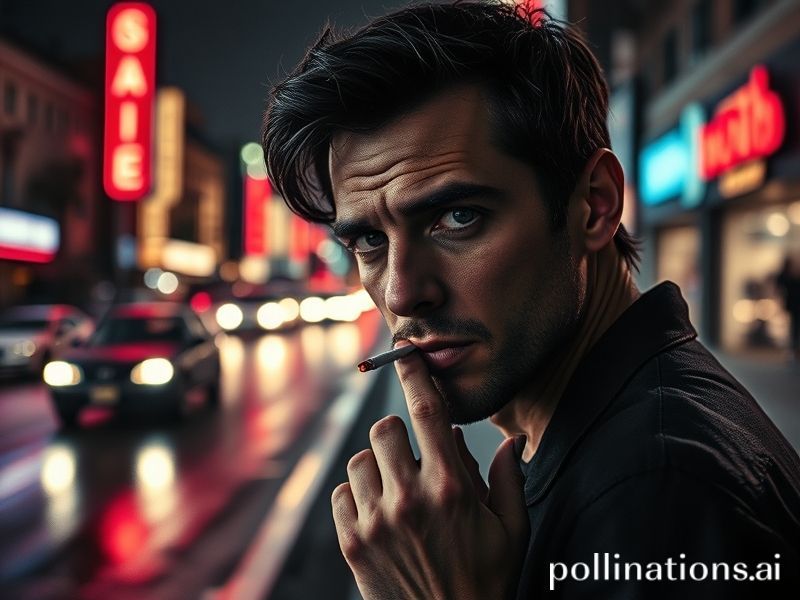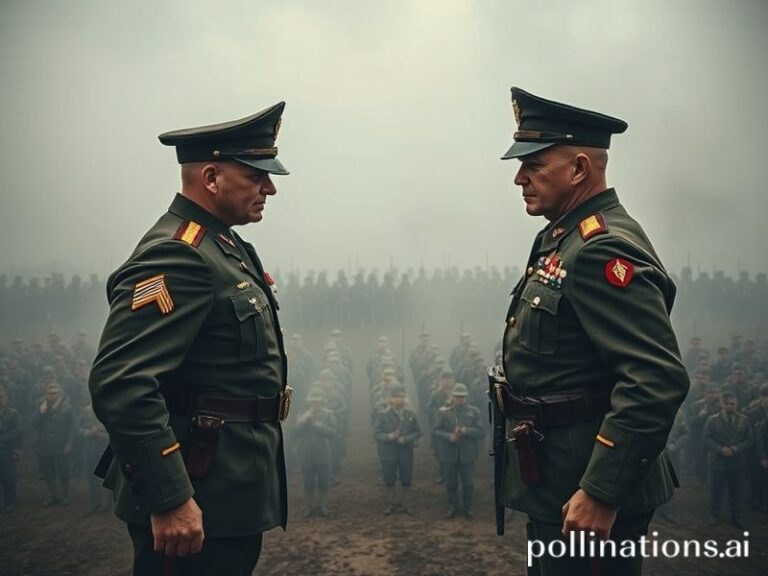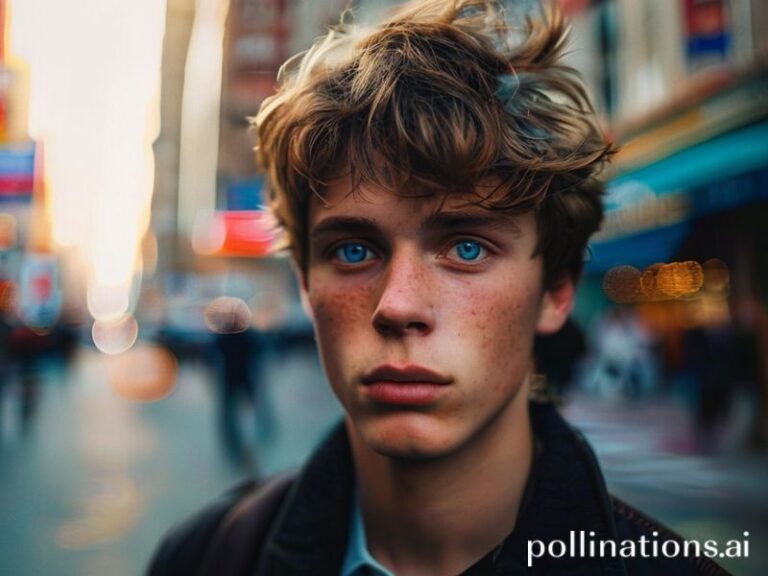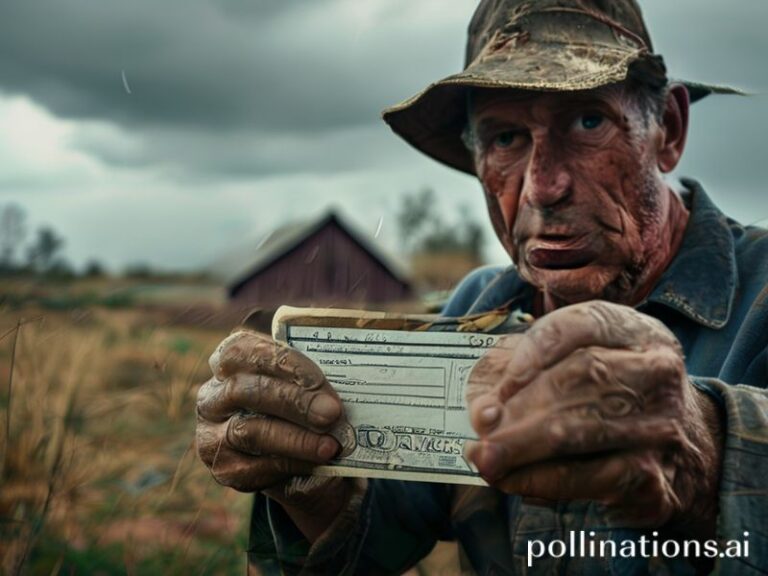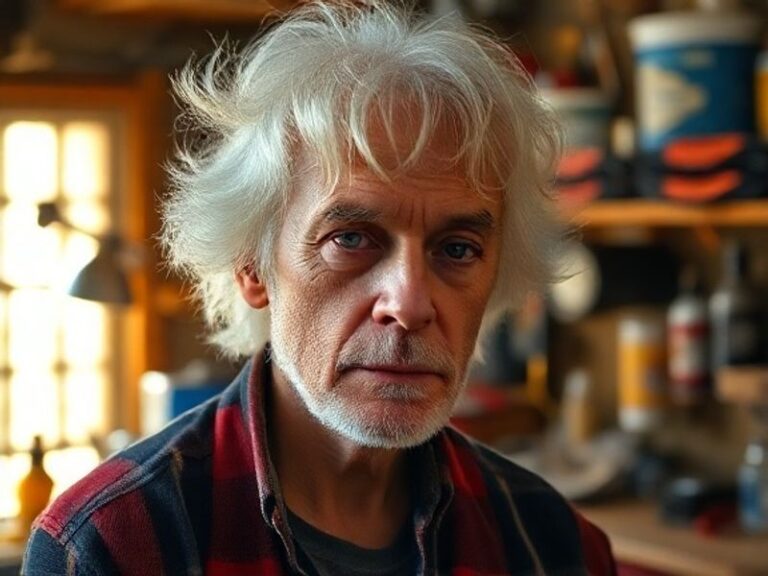Joaquin Phoenix: The World’s Guilt-Tripping Vegan Diplomat in a Tux
In a world where billionaires race to space for sport and algorithms decide who gets a mortgage, Joaquin Phoenix has improbably become the closest thing we have to a global conscience—an ambassador of anguish in a tuxedo. From refugee camps in Greece to red carpets in Cannes, the man once famous for pretending to be Johnny Cash now spends his diplomatic capital reminding us that we’re all teetering on the same melting iceberg, albeit in designer shoes.
The international press first noticed Phoenix wasn’t your average Oscar bait when he used his 2020 acceptance speech to scold Hollywood for its private-jet addiction—delivered, of course, moments before a fleet of limos idled outside to whisk A-listers to the after-party. European broadsheets called it “hypocrisy tartare,” while Latin American pundits praised his willingness to bite the manicured hand that feeds. In India, op-eds debated whether Phoenix’s vegan sermon was neo-colonial guilt or a genuine mea culpa; the answer depended largely on whether the columnist had already ordered butter chicken for lunch.
What makes Phoenix geopolitically interesting is his insistence on exporting American self-loathing to places that have their own perfectly functional crises. Touring Jordan’s Zaatari camp, he posed for photos with Syrian teenagers who had never heard of Gladiator but instantly recognized the look of a man haunted by his own species. “He cries like my uncle after the bombs,” one teenager told Al Jazeera, inadvertently summarizing Phoenix’s brand: Method empathy, now playing at a humanitarian disaster near you.
Meanwhile, the Chinese box-office gatekeepers—never fond of moral lectures—have quietly downgraded Phoenix from “leading man” to “that guy who makes chickens nervous.” Still, bootleg DVDs of Joker circulate in Chengdu night markets, where viewers admire his anti-capitalist clown without the faintest awareness that their government just censored the words “Taiwan” and “milk tea” from social media for unrelated reasons. Such is the miracle of globalization: a performance about systemic collapse becomes a collectible fridge magnet in a system busily collapsing elsewhere.
Back in Europe, the EU’s farm lobby has begun referring to Phoenix as “the pesticide with a pulse,” blaming him for a 12 percent drop in veal consumption among urban millennials. French farmers, never subtle, dumped manure outside a Paris cinema showing a PETA documentary he narrated, thereby proving his point about violence while missing the irony of weaponizing cow excrement to defend veal.
Yet for all the eye-rolling, Phoenix has achieved something diplomats only dream of: he makes the abstract unbearably personal. When he carries a drowned calf on his shoulders for a climate-change protest in London, commuters pause their doom-scrolling long enough to feel vaguely complicit. The stunt is pure theater, but so is the United Nations—and Phoenix’s prop department has a better budget for tears.
The broader significance? In an era when nations weaponize trade routes and water supplies, Phoenix offers the radical notion that guilt might be the last renewable resource. He can’t stop Amazon deforestation or the arms trade, but he can ensure that every steak dinner comes with a side order of existential dread—an appetizer the world didn’t order but may secretly crave.
As COP delegates argue over carbon credits in air-conditioned tents, Phoenix will likely be outside chaining himself to something photogenic. History probably won’t remember which glacier he saved, but it will note that someone, however theatrically, refused to let us look away. And if that sounds like faint praise, consider the alternative: a planet where the only thing we export faster than emissions is indifference. In that context, a vegan in a tuxedo screaming at the sky feels almost like hope—albeit the kind that arrives wrapped in gallows humor and a compostable bow.

